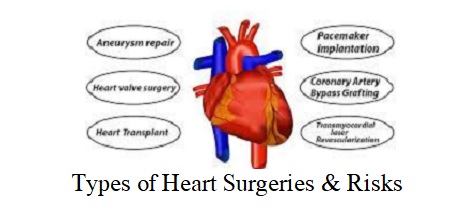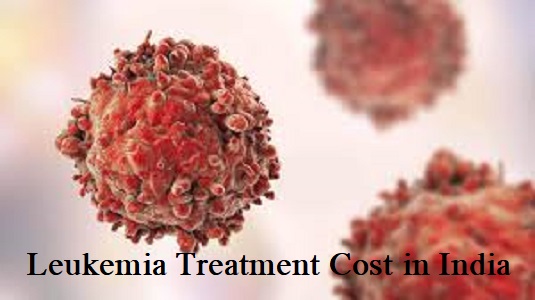Gallbladder Cancer: Symptoms, Causes, Diagnosis, Treatment, Cost & Recovery
Gallbladder cancer is an uncommon type of cancer that begins in the organ below the liver that stores bile—a digestive fluid produced by the liver that helps in fat digestion. Gallbladder cancer is typically detected in advanced stages due to the lack of distinct early symptoms, posing a major challenge to timely detection and treatment. Cancer begins in the gallbladder’s innermost mucosal layer and can spread. While early-stage diagnoses have a high cure rate, late-stage diagnoses deal with difficult treatment challenges. Now we will explain you everything about gallbladder cancer treatment, cost, causes etc.
Gallbladder cancer is a very rare type of cancer that affects about 2 people per 100,000 people, with higher incidences in particular nations associated with higher rates of gallstones. Jaundice, fever, and stomach pain are all possible symptoms. The cancer can often be identified accidentally during gallbladder surgery, and prognosis is dependent on factors such as the cancer’s stage and treatment options.
What are the types of Gallbladder Cancer?
Gallbladder cancer is a rare type of cancer with several subtypes dependent on the individual cells or tissues involved. The following are the most common kinds of gallbladder cancer:
- Adenocarcinoma: The most common type of gallbladder cancer, accounting for the majority of cases, is adenocarcinoma. It begins in the glandular cells that line the inside of the gallbladder.
- Papillary Adenocarcinoma: This type of adenocarcinoma is distinguished by finger-like extensions of malignant cells. When compared to other varieties, it has a better prognosis.
- Squamous Cell Carcinoma: This type of cancer begins in the gallbladder’s flat cells. Squamous cell carcinoma is less common than adenocarcinoma, but it is often more aggressive.
- Small Cell Carcinoma: This is a rare and deadly kind of gallbladder cancer. It is made up of small, spherical cells that develop and spread quickly.
What are the causes of Gallbladder Cancer?
Gallbladder cancer occurs when healthy cells undergo genetic alterations, resulting in uncontrollable growth and multiplication. While the specific reason is unknown, scientists have identified many risk factors for these mutations. Chronic gallbladder inflammation, which has been associated with disorders such as gallstones, can expose cells to irritants in bile for extended periods, potentially leading to inflammation and cellular changes. Defects in fluid-carrying channels may also play a role, allowing pancreatic secretions to leak and encourage abnormal cell development. Researchers are investigating how inflammation-related risk factors may change DNA, activating oncogenes or decreasing tumor suppressor genes.
What are the Signs and Symptoms of Gallbladder Cancer?
Gallbladder cancer often goes undetected in its early stages because symptoms do not appear until the disease has advanced. Some of the symptoms of gallbladder cancer are:
- Abdominal Pain
- Abdominal Bloating
- Unexplained Weight Loss
- Jaundice
- Nausea and Vomiting
- Lumps in the Abdomen
- Fever
- Dark Urine
What are the risk factors associated with Gallbladder Cancer?
Although gallbladder cancer is rare, it is influenced by many risk factors that can contribute to its development. Some of the major factors linked to an increased risk of gallbladder cancer are:
- Gender: Gallbladder cancer is more common in women, with women and females assigned at birth having a higher risk.
- Age: The risk of gallbladder cancer increases with age, especially in people over the age of 65. The typical age of diagnosis is roughly 72 years old.
- Gallstones: People who have a history of gallstones, especially large ones, are at a higher risk.
- Chronic Inflammation: Conditions like chronic gallbladder inflammation (cholecystitis) enhance the risk.
- Abnormalities: Gallbladder anomalies, such as cysts, bile duct malformations, and porcelain gallbladder indicated by calcium deposits), are associated with increased risks.
- Population Variances: The prevalence of gallbladder cancer varies globally and among ethnic groups. Mexican, Latin American, and Native American groups have higher rates.
- Primary Sclerosing Cholangitis (PSC): Increased risk due to bile duct inflammation and scarring.
- Pancreaticobiliary Maljunction: An irregularity between the bile duct and the pancreas increases the risk.
- Smoking: Individuals who smoke may be at a higher risk.
- Alcohol drinking: Excessive alcohol drinking has been associated with an increased risk of gallbladder cancer.
- Obesity: Being overweight or obese can lead to hormonal abnormalities and the production of gallstones.
- Chemical Exposure: Chemical exposure at work in the rubber and textile sectors.
- Nitrosamines Exposure: Nitrosamine exposure may contribute to cancer risk.
- Gallbladder Polyps: Gallbladder polyps those are larger than 1 centimeter.
What is the diagnosis of Gallbladder Cancer in India?
The approach to diagnosing gallbladder cancer includes a thorough examination of many tests and procedures designed to better understand the complexities of this disease. Some of the diagnostic approaches used for gallbladder cancer are:
- Initial Steps: The diagnostic process begins with a rigorous physical examination and a detailed assessment of the patient’s medical history. Understanding risk factors, symptoms, and potential exposure to relevant factors helps doctors in determining the diagnostic approach.
- Laboratory Findings: Blood tests are a great resource for gaining insight into the internal dynamics of the body. Liver function tests, which include bilirubin levels and particular enzyme testing, provide vital information about the impact of gallbladder cancer on the liver. Tumor markers like CEA and CA 19-9 help in the detection of probable cancers, but increased levels can also be caused by a variety of other illnesses.
- Gallbladder Imaging: Using advanced imaging tools to visualize the gallbladder and its surrounds is important. Abdominal ultrasound, a non-invasive sound-wave-based method, provides a preliminary glance into the organ’s status. CT scans and MRIs, for example, provide detailed cross-sectional images which are helpful in the detection of tumors and the assessment of their size and location.By inserting a tube-like equipment into the body, endoscopic ultrasonography and endoscopic retrograde cholangiopancreatography (ERCP) produce more detailed images.
- Exploration of the Bile Duct: The bile ducts must be examined to rule out any obstructions or abnormalities. Magnetic resonance cholangiopancreatography (MRCP) and endoscopic retrograde cholangiopancreatography (ERCP) are two procedures that involve the injection of dye into the bile ducts.
- Biopsy Confirmation: While imaging is important, verifying the diagnosis often requires a biopsy. This involves removing a tissue sample for microscopic inspection. Biopsies can be taken during laparoscopy or using needle biopsy methods guided by imaging.
What are the different stages of Gallbladder Cancer?
Gallbladder cancer progresses through a series of stages, each indicating how far the disease has advanced within the body. These phases, which range from 0 to 4, help them determine the severity of the disease and develop appropriate treatment plans.
- Stage 0 (Carcinoma in Situ): Abnormal cells in the mucosal layer, an early, potentially treatable stage.
- Stage 1: Cancer cells reach the muscle wall but remain isolated, giving the patient a good chance of recovery.
- Stage 2: Cancer spreads to the connective tissue layers, creating new treatment challenges.
- Stage 3: Cancer has spread to the liver, surrounding organs, and lymph nodes, signaling a crucial stage.
- Stage 4: The most advanced stage, characterized by widespread metastasis to lymph nodes, blood arteries, and distant organs.
What are the different treatment options for Gallbladder Cancer in India?
Gallbladder cancer requires a personalized treatment plan based on characteristics such as cancer stage, overall health, and patient preferences.
- Early-Stage Gallbladder Cancer Surgery:
- Cholecystectomy: Removal of the gallbladder when cancer is confined to this organ.
- Extended Cholecystectomy: A more complex surgery to treat cancer that has spread to the liver, involving the removal of sections of the liver and bile ducts.
- Chemotherapy: It is administered through veins or in pill form, and targets fast-dividing cells, including cancer cells. Chemotherapy after surgery is used to kill leftover cancer cells or when surgery is not an option.
- Radiation Therapy: Radiation therapy uses X-rays and protons to kill or slow the growth of cancer cells. It is often used in combination with chemotherapy, especially when total removal is not possible.
- Targeted Drug Therapy: It targets specific weaknesses within cancer cells, causing them to die. Genetic testing identifies appropriate targeted medications depending on the characteristics of particular cancer cells.
- Immunotherapy: Immunotherapy improves the body’s immune system’s ability to recognize and attack cancer cells. This is very helpful for advanced gallbladder cancer.
- Palliative Care: It aims to improve quality of life by treating pain and nausea. Procedures such as stent placement are utilized to treat blockages in the digestive tract.
What is the success rate of Gallbladder Cancer Treatment in India?
Gallbladder cancer survival statistics in India reflect a difficult situation, with only 20% of cases acknowledged in the early stages. The five-year survival rate for metastasized gallbladder cancer is depressingly low at 2%, highlighting the aggressive nature of advanced cases. Localized gallbladder cancer, on the other hand, has a somewhat better prognosis, with a 66% survival rate. The difference highlights the important nature of early detection and intervention.
What is the cost of Gallbladder Cancer Treatment in India?
Gallbladder cancer treatment costs in India commonly range from $3,000 and $6,000. However, it’s important to note that these figures might vary depending on a variety of situations, including the stage of cancer, the exact treatments required, and the hospital that was chosen. Diagnostic procedures, surgery, chemotherapy, and post-treatment care all add to the overall cost.
Best Hospitals for Gallbladder Cancer Treatment in India
Several world-class hospitals in India specialize in gallbladder cancer treatment. These hospitals are outfitted with cutting-edge technology, knowledgeable doctors and nurses, and a wide range of services to give patients with the best possible care. Patients may prefer hospitals that are known for their multidisciplinary approach, cutting-edge treatment techniques, and sensitive patient care.
- Indraprastha Apollo Hospital, New Delhi
- Max Super Specialty Hospital, Saket, New Delhi
- Apollo Cancer Institute Delhi
- Artemis Hospital, Gurgaon
- Fortis Hospital, Noida
- Fortis Memorial Research Institute, Gurgaon
- BLK Super Speciality Hospital, New Delhi
- Narayana Multispecialty Hospital, Bengaluru
- Kokilaben Dhirubhai Ambani Hospital, Mumbai
Top Doctors for Gallbladder Cancer Treatment in India
Oncologists who specialize in gallbladder cancer treatment can be found in India. These top doctors have been acknowledged for their skill, experience, and dedication to providing patients with the finest possible care. Expertise in the most recent treatment techniques, a patient-centered approach, and a dedication to personalized care are all required.
- Ramesh Sarin – Indraprastha Apollo Hospital, New Delhi.
- Harit Chaturvedi – Max Super Speciality Hospital, Saket, New Delhi.
- Yogesh Kulkarni – Kokilaben Dhirubhai Ambani Hospital, Mumbai.
- Sanjeev Kumar – Manipal Hospitals Dwarka, Delhi.
- Kapil Kumar – Fortis Hospital, New Delhi.
- Jalaj Baxi – Fortis Hospital, Noida.
- Vikram Pratap Singh – Indraprastha Apollo Hospital, New Delhi.
- Shabber S Zaveri – Manipal Hospital (Old Airport Road), Bangalore.
- Feroz Pasha – Indraprastha Apollo Hospital, New Delhi.
Contact Form
Attach Medical Report
Top Doctors & Surgeons in India
Why Choose Us

Personalized Care
24x7 Supports
Top NABH and JCI accredited Hospitals
Free Cost Estimation & Medical Opinion from Specialist
Get Free Tele/Video Consultation
Visa and Traveling Assistance
Post-surgery with Assistance in Follow-ups














